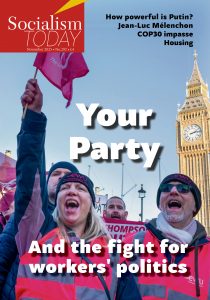
It would not be exaggerating to say that the hopes and expectations raised by Jeremy Corbyn and Zarah Sultana’s appeal in July to join “a new kind of political party” to take on the “corporations and billionaires” have dimmed as the process of actually founding the new party has gone on.
The inaugural conference of Your Party in Liverpool, taking place after this edition of Socialism Today has gone to press, might achieve a reset of sorts. On the other hand, the unresolved differences between its leading figures and their supporters, not least between the separate camps around Corbyn and Sultana, could come to a head sooner rather than later.
Read more